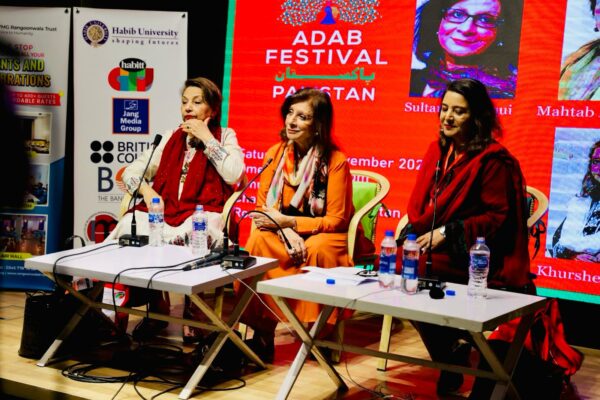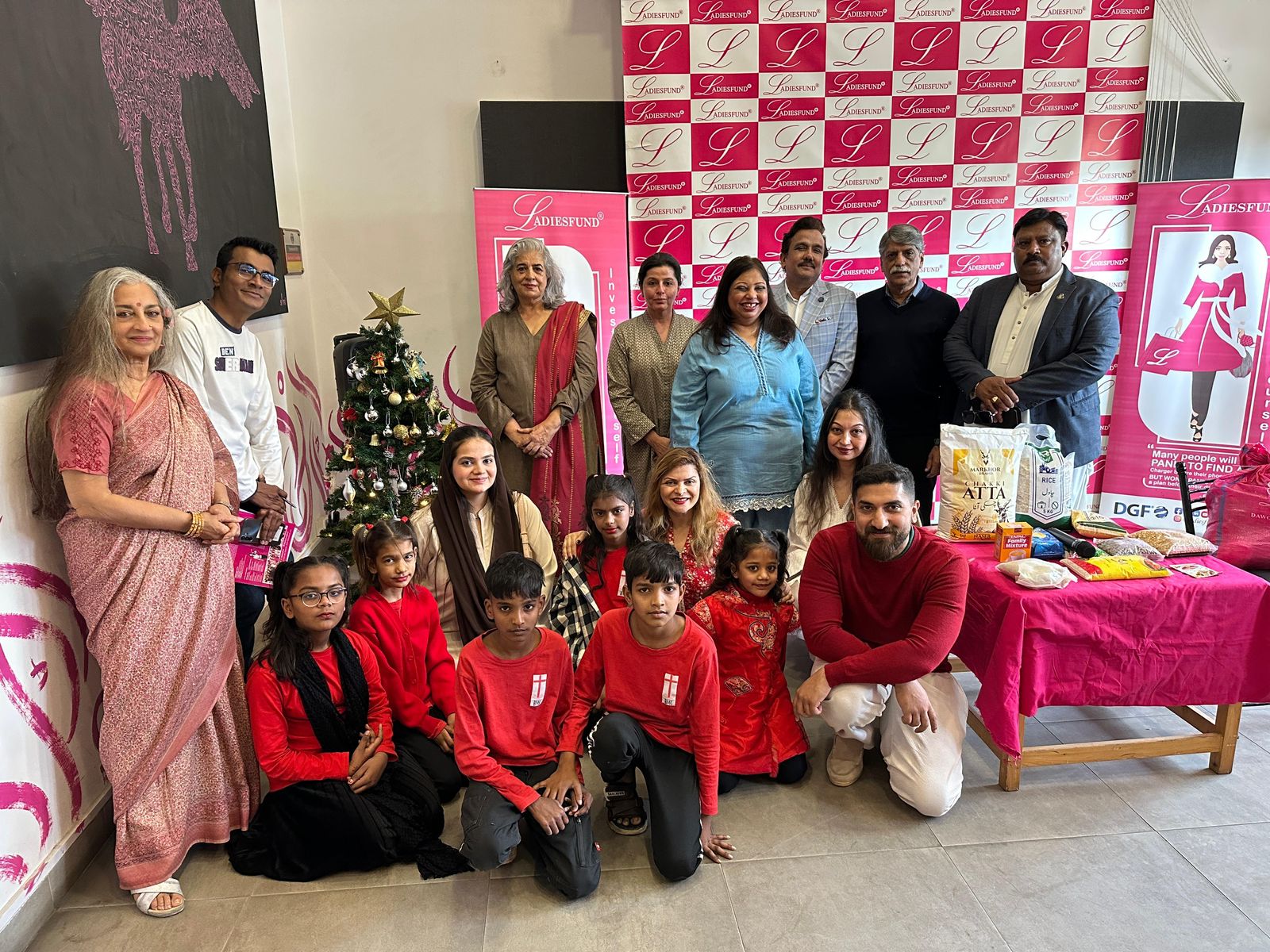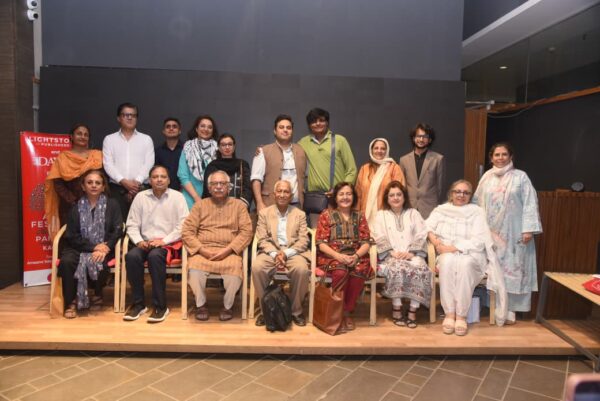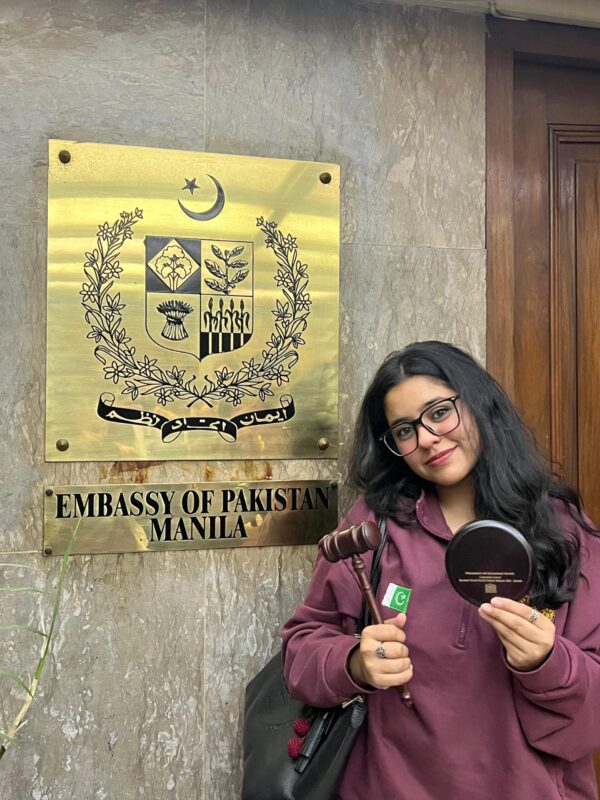
Fifth Adab Festival Pakistan unfolded its literary wonders and intellectual discussions on its second and final day at Habitt City, leaving the hordes of attendees of the festival enriched with knowledge, awed, challenged, and with a heightened sense of cultural awareness. Adab Festival provided a platform for countless literary activities including book launches, enlightening discussion sessions, and performing arts-related events, and something new and innovative – an open mic session in which the audience could speak from their hearts, read anything they had written or say what was on their minds. A true opportunity of free expression.
The day kicked off with a compelling interview of Ambassador and Additional Foreign Secretary, Mumtaz Baloch by Sarmad Ali. This was followed by a discussion on The Reality of Artificial Intelligence with Syed Irfan Hyder, Rabeel Waraich and Bina Shah, with Umer Khan as moderator.
The “Human Sciences Education in the Anthropocene” discussion, led by Muhammad Haris, Shama Dossa, and Anum Asi, moderated by Nauman Naqvi delved into the crucial role of education in addressing contemporary issues, environmental sustainability and social justice.
Teachers and performers Atif Badar and Yasmin Motasim led the captivating performance Adab ki Dastak showcasing the art of dramatic readings and Dastan Goi.
The session Building a Generation: Are Schools Passing their Exam? featured speakers Salma Alam, Rana Hussain, Hassan Khan, and Faisal Mushtaq, and was very well-received. The speakers critically examined the modern role of schools and their impact on shaping responsible citizens.
In another enlightening session, “Breaking Boundaries: Inspiring Men in Humanities,” speakers Jehan Ara, Muhammad Ashar Khan, Rehan Sheikh, and Hamza Bin Sajjad discussed breaking stereotypes and the significance of promoting boys in the field of social sciences. Inaam Nadeem moderated the dialogue.
In a thought-provoking dialogue, speakers Kishwar Naheed, Afzal Syed, and Iftikhar Arif, led by Zehra Nigah and moderated by Shoaib Arshad, explored the importance of Mushaira in Pakistan. The conversation aimed to understand if Mushairas were just an enjoyable activity or if they contribute meaningfully to intellectual and academic discussions in our society.”
Another session focused on social media vs traditional media with speakers Shahab Rizvi, Sarmad Ali and Bilal Ahmad Memon.
Kishwar Naheed’s latest book Tar Tar Pairahan with speakers Noor-ul-Huda Shah, Kishwar Naheed and Syed Jaffar Ahmed celebrated the legendary poet with captivating recitals by Kishwar Naheed herself.
The audience enjoyed sessions on Higher Education with speakers Anjum Halai, Talib Karim, Anzar Khaliq and Moeed Yusuf, moderated by Shahnaz Wazir Ali, and A Forest in Peril which featured a screening of a documentary and stories from the Edge of Delta. Presenter Tariq Alexander Qaiser and moderator Umber Khairi led a discussion on mangroves.
In a session on the bestselling book ‘Lost to the World: A Memoir of Faith, Family, and Five Years in Captivity,’ by Shahbaz Taseer he shared his nail-biting experiences in captivity with Razi Ahmed, Framji Minwalla and Omayr Aziz Saiyid.
Exploring the intersectionality of storytelling, media, and the mental health of society, speakers Dr Ayesha Mian and Ziad Zafar engaged in a meaningful discussion moderated by Aliya Iqbal-Naqvi.
Engaging discussions on literature, education, and society included sessions like on Syed Kaleem Imam’s book, ‘In Pursuit of an Ethical State: Reflections of a Police Chief,’ with the author in conversation with Ghazi Salahuddin. The third book discussion of the day was on Ishrat Hussain’s latest book, ‘Development Pathways: India, Pakistan, Bangladesh 1947-2022.’ The discussion featured Ishrat Hussain, Muhamad Azfar Ahsan, and Salimullah with Ehsan Malik as moderator.
Another session covered the works of the renowned poet Tanveer Anjum in conversation with Nasira Zuberi and Syed Kashif Raza. The session included heartfelt recitals by Anjum of her poems.
A session on the book Face to Face with Benazir by Zahid Hussain had Sherry Rahman, Raza Rabbani, Ghazi Salahuddin, and the author discussing Benazir’s life and legacy.
Other sessions were on books such as ‘Betrayal’ and ‘Qaidi’ by Omar Shahid Hamid with Inaam Nadeem and Aysha Baqir. ‘Pakistan ki Zarkhez Zabanein,’ featured speakers Amar Sindhu, Saani Syed, Makham Khattak, and Arfana Mallah, moderated by Waheed Noor and chaired by Noor-ul-Huda Shah, which explored the development and growth of Pakistani languages, their societal influence, and their future in the rapidly evolving times.
The final spotlight was on the autobiography “My Life & Times: Abdul Samad Khan Achakzai translated from Pashto by his son, Muhammad Khan Achakzai, former Governor of Balochistan. The discussion featured Omair Ahmed Khan alongside the author’s grandson and the translator’s son, Ayaz Achakzai.
The evening reached its pinnacle with the performance ‘ART YA AATA’ by GRIPS Theatre, featuring actors Khaled Anam, Faiza Kazi, Khalifa Sajeeruddin, Ameed Riaz, and Aysha Sheikh, as a tribute to the late Imran Aslam.
Adab Festival Pakistan 2023, with its vibrant literature celebrations, maintained its role as a dynamic platform for intellectual exchange and the celebration of Pakistan’s cultural richness through diverse sessions, performances, and book launches. The event, marked by the generous support of valued sponsors and partners such as Lightstone Publishers, Getz Pharma, British Council, Habib University, Alliance Française, Ambassade de France Pakistan, Jang Media Group, Bank of Punjab, Ed Lab Pakistan, The Little Book Company, Phenomena, Rangoonwala Foundation and Infaq Foundation, underscored its commitment to fostering a thriving literary and cultural landscape in Pakistan.






